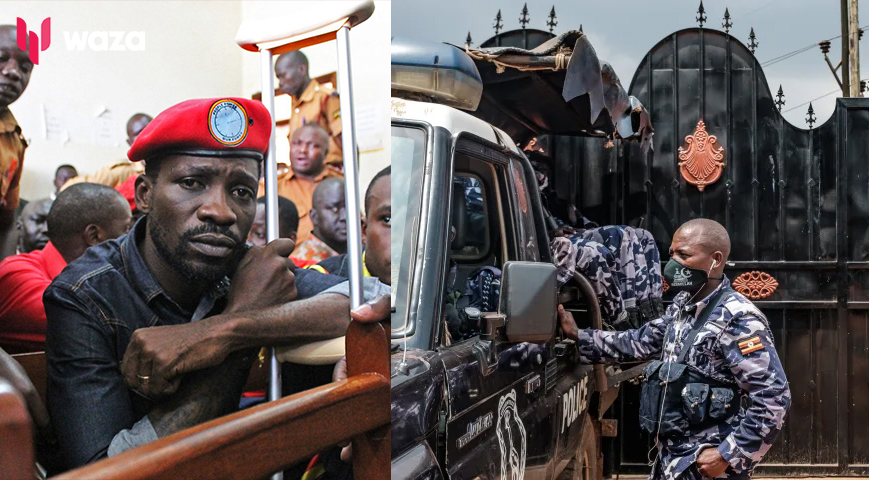Opposition leader Bobi Wine reported that heavily armed security forces surrounded his party headquarters on Monday and arrested several leaders, just one day before a planned anti-corruption march that authorities have banned. This move comes after President Yoweri Museveni, who has ruled Uganda for nearly four decades, warned that those planning to protest on Tuesday were "playing with fire."
Wine, whose real name is Robert Kyagulanyi, informed AFP that security forces had surrounded the National Unity Platform (NUP) headquarters in Kavule, a suburb of Kampala, before a scheduled party press conference. "Our headquarters are under siege by heavily armed police and the military. This was expected by the regime but we are not giving up on the struggle to liberate Uganda," he stated. He also mentioned that several party leaders had been "violently arrested," although this was not confirmed by police.

Ugandan police spokesman Kituuma Rusoke cited "security concerns" for the deployment at the NUP offices, claiming intelligence suggested a large crowd had been mobilized for the press conference, potentially disrupting peace.
The Ugandan authorities have frequently targeted the NUP and Wine, a pop star turned politician who unsuccessfully challenged Museveni in the 2021 elections. Wine warned that the regime was prepared to use violence to maintain power but urged Ugandans not to be intimidated. "We want a country where we all belong, not just a few in power," he added.
Did you read this?
On Saturday, Ugandan police announced they would not permit the Tuesday march, organized on social media with the hashtag #StopCorruption. Museveni later addressed the nation, warning against "illegal demonstrations" and saying, "You are playing with fire." The anti-corruption movement in Uganda has been inspired by ongoing protests in Kenya against the government of President William Ruto, led largely by young Gen-Z activists.

Rusoke emphasized that the police would not tolerate disorderly conduct and were attempting to dissuade protest organizers from what they saw as a potentially anarchic approach. Corruption remains a significant issue in Uganda, with several major scandals involving public officials. The country ranks 141 out of 180 on Transparency International's corruption index.
Earlier this year, the United States and Britain imposed sanctions on several Ugandan officials, including parliamentary speaker Anita Among and two former ministers, over alleged corruption involving the theft of roofing materials intended for the poor. Additionally, four legislators from Uganda's ruling party and two senior civil servants are currently in custody for allegedly embezzling funds meant to compensate farmers who lost property during the 1980s bush war that brought Museveni to power.

Meanwhile, Kenyan activists continue to protest against President William Ruto's government. Peaceful rallies against controversial tax hikes have sometimes turned violent, resulting in 50 deaths since June 18, according to a state-funded rights body. Activists are now calling for Ruto to resign and are demanding action against corruption and alleged police brutality.









